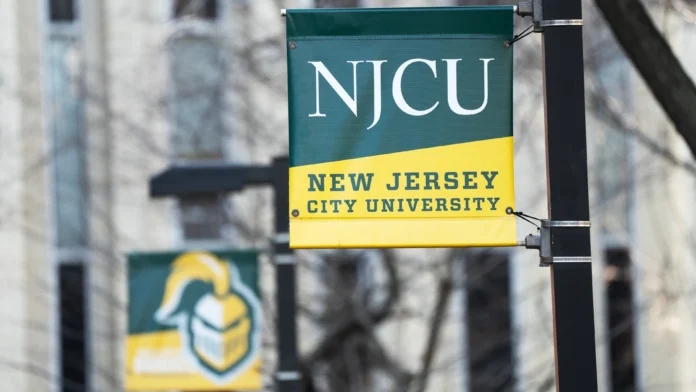In a transformative move that could redefine public higher education in New Jersey, Kean University and New Jersey City University (NJCU) have officially signed a nonbinding Letter of Intent (LOI) to merge. This proposed historic partnership would bring NJCU under Kean’s academic and administrative umbrella, creating a new campus — Kean Jersey City — and marking a significant step toward strengthening accessibility, equity, and institutional resilience across the state.
This strategic merger, still pending multiple levels of approval and regulatory checkpoints, is about more than just consolidation. It’s about reinvention. It’s about reimagining what public universities can be — engines of opportunity, social mobility, and innovation for generations of students, particularly those from historically underserved communities.
To stay up-to-date on how this major development continues to shape New Jersey’s educational and economic future, visit Explore New Jersey.

The Vision: One University, Two Historic Legacies
The LOI lays the groundwork for Kean to absorb NJCU’s assets and liabilities while preserving its mission of serving first-generation, adult, and diverse student populations. Once finalized, this partnership would not only secure NJCU’s future — which has faced recent financial turmoil — but also expand Kean’s footprint and influence as New Jersey’s urban research university.
Kean University President Dr. Lamont O. Repollet emphasized that this merger is about legacy, alignment, and impact.
“This strategy honors the legacy of NJCU while elevating our shared commitment to access, equity, and excellence,” said Repollet. “By coming together, we are creating a stronger, more resilient public higher education system that meets the needs of New Jersey’s students and communities.”
Under the new structure, the Kean president would hold executive oversight over the combined institution, while a campus chancellor appointed by Kean would lead the Kean Jersey City campus. This model aims to create operational efficiency while retaining the cultural and academic identity of both universities.
The Mission: Elevating Equity and Opportunity
NJCU Interim President Andrés Acebo, J.D., who has helped steer NJCU through turbulent times, spoke passionately about the merger’s significance:
“This moment isn’t just significant — it is sacred,” Acebo said. “We are reclaiming what public universities were always meant to be — places of promise, not privilege.”
The merger’s goals go far beyond budget balancing. It envisions a revitalized institution rooted in community engagement, diversity, and inclusion — a place where working-class families, dreamers, and first-generation students can access high-quality education without barriers.
This student-first philosophy, echoed by both presidents, reinforces the shared vision of Kean and NJCU: to serve as anchor institutions that uplift entire communities, not just individual students.
What Comes Next: A Multi-Phase Process
While the announcement of the LOI represents a major milestone, the road ahead includes several formal steps before full integration. The multiphase regulatory process will involve:
- Approval from the Kean University Board of Trustees
- Review by the Middle States Commission on Higher Education (MSCHE)
- Legislative oversight by the New Jersey State Legislature and Office of the Secretary of Higher Education (OSHE)
- Final approval from the United States Department of Education
If everything proceeds as planned, a change of control could be enacted by June 2026, followed by the official integration of NJCU into Kean University — and the full launch of Kean Jersey City.
In the meantime, an integration planning team, composed of representatives from both schools, will begin collaborating on operations, curriculum alignment, and shared services agreements to ensure student success during the transition.
Students currently enrolled at NJCU would automatically become Kean students once the merger is complete — with no disruption to their education.
The Impact: What This Means for New Jersey
This proposed union represents a rare and ambitious opportunity to transform the state’s public higher education system. By combining forces, Kean and NJCU are looking to:
- Strengthen academic offerings by pooling faculty, programs, and research opportunities
- Create new pipelines to workforce readiness in fields like healthcare, business, technology, and education
- Expand urban access to higher education in underserved communities, particularly in Jersey City
- Maximize operational efficiency without sacrificing student-centered values
This isn’t just about survival — it’s about creating a blueprint for what the future of higher education can look like in the Garden State.
“If we do this right, we become a model for the state,” said Repollet. “It has to be collaborative. It has to be collegial. And it has to be bold.”
New Jersey Secretary of Higher Education Brian Bridges praised the merger’s potential to fulfill the long-term vision for institutional stability and student success.
“This collaboration reflects a thoughtful and student-focused approach,” Bridges said. “It supports resilience and prioritizes access to education — the very foundation of our higher education system.”
Final Thoughts: A New Era for Public Education
As Kean and NJCU embark on this transformational journey, they are doing more than reshaping their campuses — they’re redefining what it means to be a public university in New Jersey. The planned creation of Kean Jersey City could serve as a national model for partnerships that prioritize equity, adaptability, and sustainability.
In a time when the higher education landscape is shifting rapidly, this merger presents a bold new future — one that is grounded in purpose and built to last.
Stay connected with the latest developments in education, community, and economic news across the Garden State by visiting Explore New Jersey.












